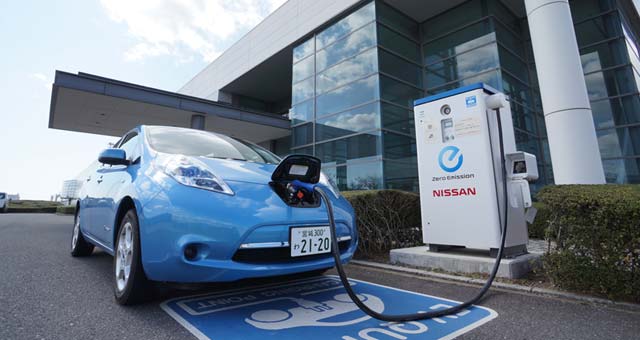
Up until June 30, the state of Georgia offered the buyer of an electric car a $5,000 credit. That was on top of the $7,500 credit available from the federal government. Nissan sold 1,020 LEAFs in May of this year and another 1,008 in June. In August, it sold 66 of its all electric vehicles. Why? Because the Georgia state credit was repealed by the legislature effective June 30.
The law repealing the tax credit was introduced by state representative Chuck Martin, a Republican from Alpharetta. He says, “I thought the credit turned from an incentive into a virtual entitlement. It was essentially taking money that would have been paid into taxes in Georgia and a subset of people were getting their car paid for. When you’re having a product that’s selling because it’s subsidized, what’s the push for Nissan to be innovative and make that car less expensive or more valuable to the consumer?” Martin asks. “I always said (the tax credit) was too open-ended, too generous and too targeted. Historically, we have used the tax code to give people (incentives) to do the right thing and (offer them disincentives) from doing the wrong thing.”
The Georgia tax credit did not apply to hybrid cars like the Toyota Prius and the Kia Optima Hybrid or to plug-in hybrids like the Chevy Volt. It just so happens that Representative Martin owns a Kia Optima Hybrid.
Don Francis, coordinator of Clean Cities-Georgia Coalition, was opposed to getting rid of the subsidy. He says the tax credit “was an economic benefit to the state, it was an environmental benefit to the state, it helped jobs because all of a sudden we had people putting in charging stations and things like that, and all of that was taken away in one fell swoop.”
The federal tax credit is set to expire on December 31, 2016. With a Congress fractured by partisan bickering and a presidential election scheduled to take place before then, no one can predict what if anything will replace it. More than likely, free market arguments like the one put forth by Benita Dodd, vice president of the Georgia Public Policy Foundation will be made to Congress. Dodd says it’s not the role of the federal or state government to offer incentives to private industries.
“That’s social engineering,” Dodd told Watchdog.org. “A lot of Nissan LEAFs are on the road (in Georgia) because of this subsidy, but people are supposed to be driving electric cars because they’re supposed to be more environmentally responsible. So if you’re that concerned about the environment, then why not pay full price for what you’re getting?”
How do you feel about this sort of subsidy-driven “social engineering?” Is it necessary to slow the use of fossil fuels and protect the environment? Or is is a gross distortion of the marketplace that cannot be justified? Tell us what you think in the comments section below.
[“source-gas2”]





